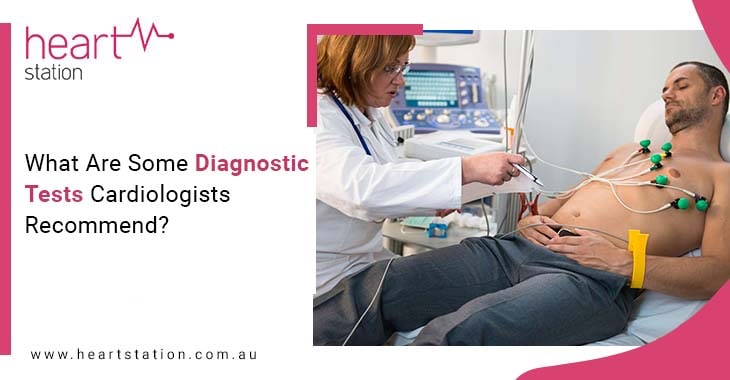Maintaining heart health is paramount, and diagnostic tests are pivotal in assessing cardiovascular conditions. We are committed to providing comprehensive cardiac evaluations at Heart Station Clinic, the Top Echocardiography Testing Centre in Pimlico. This article delves into the diagnostic tests cardiologists recommend, highlighting the significance of Echocardiography, Ambulatory Blood Pressure Monitoring, and other crucial examinations.
- Echocardiography: A Window into Your Heart
- Holter Monitoring: Capturing Heart Rhythms Beyond the Clinic
- Cardiac MRI: A Detailed View of Heart Structures
- Ambulatory Blood Pressure Monitoring: Tracking Blood Pressure Round the Clock
Echocardiography: A Window into Your Heart
Echocardiography, often called an “echo,” is a non-invasive imaging technique that uses sound waves to create detailed images of the heart’s structures and functions. This test allows cardiologists to evaluate the heart’s chambers, valves, and blood flow patterns. It is crucial in diagnosing various heart conditions, including valve disorders, heart muscle abnormalities, and congenital heart defects.
During an echocardiogram, a transducer is placed on the patient’s chest, emitting sound waves that bounce off the heart’s structures. These waves are then converted into images that provide valuable insights into the heart’s health. Echocardiography helps cardiologists assess the heart’s pumping efficiency, detect blood clots, and identify abnormalities requiring further intervention.
Holter Monitoring: Capturing Heart Rhythms Beyond the Clinic
Holter monitoring is a continuous ECG monitoring technique that records the heart’s electrical activity over a 24 to 48-hour period. This test is primarily employed to detect irregular heart rhythms (arrhythmias) that might occur infrequently and elude diagnosis during a short clinic visit.
By wearing a portable ECG device, patients can go about their daily activities while the device captures data on heart rate and rhythm variations. Cardiologists then analyze this data to identify arrhythmias like atrial fibrillation, bradycardia, or tachycardia. Early detection of such irregularities is crucial for appropriate treatment and risk assessment.
Cardiac MRI: A Detailed View of Heart Structures
Cardiac Magnetic Resonance Imaging (MRI) is an advanced imaging technique involving a strong magnetic field and radio waves that provides detailed images of the heart’s structures, function, and blood vessels. It offers insights into the heart’s size, muscle thickness, and blood flow patterns, aiding in diagnosing conditions such as heart muscle disorders, congenital anomalies, and heart tumors.
Cardiac MRI is particularly valuable for evaluating heart diseases that might not be adequately visualized through other imaging methods.
Ambulatory Blood Pressure Monitoring: Tracking Blood Pressure Round the Clock
Ambulatory Blood Pressure Monitoring (ABPM) is a diagnostic test that records a patient’s blood pressure over 24 hours. Unlike traditional blood pressure measurements at a clinic, ABPM provides a more accurate picture of a person’s daily and night blood pressure fluctuations.
During ABPM, the patient wears a portable device, which inflates and measures blood pressure at regular intervals. Cardiologists then analyze this data to understand patterns of blood pressure variations. ABPM assists in diagnosing conditions like masked hypertension (normal clinic readings but high out-of-office readings) and nocturnal hypertension (elevated blood pressure during sleep). If you are searching for Ambulatory Blood Pressure Monitoring Near Me upon your doctor’s recommendation, then visit our clinic for the best facilities.
Final Words
Stop searching for Ambulatory Blood Pressure Monitoring Near Me and similar diagnostic destinations as at Heart Station Clinic, the Top Echocardiography Testing Centre in Pimlico; we prioritize comprehensive cardiac evaluations to ensure the early detection and effective management of heart conditions. Echocardiography, Ambulatory Blood Pressure Monitoring, and other diagnostic tests recommended by cardiologists play a pivotal role in safeguarding heart health.

